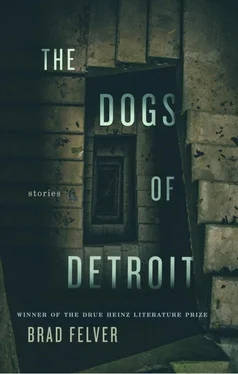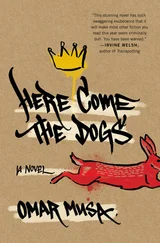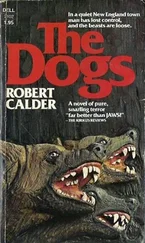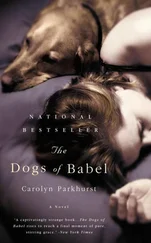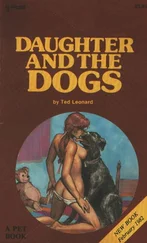He’d never once spoken to her that way. Halfway through saying it he already felt horrible. He didn’t love her any less now, but everything around them had changed, as if they were standing still while a storm swept through around them.
Ruth sat down on the cold concrete and suddenly looked very young and very fragile. For a moment Gus had some hope, the smallest breach. But her face was drawn, had grown tighter, menacing.
“We can use a lawyer we know,” she said. “Charlie’s brother, I guess. Keep it all simple.”
“Simple,” he said.
It was stunning how quickly their country could crumble. Civil war. A dozen years to construct but only a few months to collapse.
Gus started moving his things out of the house the next week. At first Ruth was still there, but by the time he was nearly finished, she managed to be absent. The last hours he moved slowly, one small box at a time, adding in extra, unnecessary trips. What did he hope for? A change of heart at the last minute? A dramatic reconciliation where they fell to the wet ground and kissed?
He found a note on the kitchen counter, just a small Post-it, as if Ruth did not even care if Gus found it: It’s different for mothers .
He stared at the letter. It demanded that he develop a fresh emotional response, one that hadn’t yet been charted and classified by scientists: profoundly sad and confused and resentful and sad again around the edges. Such hardness in her. Jesus, he thought, halfway wishing he were capable of such hardness also. How easily grief could mutate into something else entirely. She was right, of course: there were things that only mothers were capable of, like lifting cars off their children during tornadoes. Like this.
He left the note where it was. He needed her to wonder for the rest of her life if he even saw it. Initially, he had planned on leaving her the Pomeranian, but the note stopped him. He made room in the front seat, where it curled into a ball and fell asleep as they drove away.
Gus moved back to the farm. He leased the land: soy, wheat, corn, hay. Days he worked jobs in Cleveland—elaborate built-ins, mantels, newel posts hickory spindles on wide staircases—and evenings he built desks, the glow of the old workshop spilling into the barnyard late into the night. He ate microwave dinners in his underwear and left the telephone off the hook. He became a ghost, the sort of man that people in a small town recognize, though no one can recall ever speaking to.
Ruth sold the house to the first offer. She couldn’t be in Ohio any longer. She moved back to Boston, where her mother still lived, and soon she was attending fundraisers and charity auctions in the ballrooms of the most elegant old hotels. She found herself surrounded by people so wealthy they had no need to locate Ohio on a map. The city offered as many distractions as she needed, faces new to her and those whom she had known many years earlier when they were thinner and more eager.
Ruth eventually settled in with a man named Harold Gutman. He had worked as an intern under her father and kept a trimmed beard, mostly gray now, and had a single bumper sticker on his BMW, which read, very simply, “DOCTOR.” Ruth found this a strange and gaudy touch for a man who otherwise largely passed through the world undetected. When he started speaking of marriage, she would turn away and tell him that she wasn’t so sure, not yet. She still had so many things to sort out, tangled linkages in her brain. It was in the evenings when Harold Gutman would invariably make such hints, always after a few drinks. He never proposed outright, only took her temperature, which was icy for many years, though he was convinced a thaw would eventually come.
“I’m just not sure ,” Ruth would always say if he pressed her. Of course, she was perfectly sure, perfectly sure she did not want to marry Harold Gutman, did not want to marry again, ever.
It was this incessant talk of marriage which pushed her back into her dissertation. She needed something to occupy her evenings in order avoid Harold Gutman’s affections, and so she holed herself up in the wood-paneled study, finally finishing eight years after Annabelle’s death. She declined to walk at the commencement ceremony because she did not want to travel back to Cleveland. Instead, she strolled the Back Bay streets alone, and when she returned to their apartment, she found on her desk a sticker of the letter S, which Harold Gutman had left for her. Together they would be “DOCTORS” for all the world to see.
When the Pomeranian died, Gus buried it behind the barn. He stood in front of the old rotary wall phone, ready to dial Ruth and deliver the news. It was all he could think to do. Should he or not? They hadn’t spoken in years. He wouldn’t even know how to say hello. Old lovers were far worse than strangers. Should he use her name or not?
Hello, Ruth .
Ruth, hello, it’s Gus .
Hi, there, it’s me .
Ruthie, dear, I’m sorry to deliver such bad news .
When he finally dialed, a man’s voice answered, and he hung up immediately.
Ruth took an adjunct position at a local community college, teaching a course or two each semester. It felt like a concession, but she ended up liking her students, most of whom were bright and engaged. Some days she would stay on campus for eight or ten hours, teaching and meeting with students. She loved most how they would stomp into her office, breathless and full of absurd excuses. She would come home and tell Harold Gutman about them. “Even when they say ridiculous things, they’re so enthusiastic about it,” she said.
“What about children then?” Harold Gutman asked her one evening after a benefit at the Park Plaza. He’d allowed himself an extra glass of wine and was feeling warm and confident.
She squinted, though it was dark in their bedroom. “We’re too old for that, Harold.” She was only forty-six but felt much older.
“We could adopt.”
“It’s nice of you to say that, but no, we couldn’t.”
Harold Gutman didn’t pursue it after that. No marriage, no family of their own. Instead, her students would become her children, in a way that was common but not terribly healthy.
When a full-time teaching post opened up, Ruth took it. “If your father were still alive” was all her mother would say to the news, which was the harshest sort of admonishment she could muster at the thought of a community college. Harold Gutman too seemed perplexed. “Isn’t it terribly repetitive?” he asked, and she told him that of course it was. “I don’t like surprises or changes the way I used to.”
At a conference in Phoenix, she slept with a young assistant professor of statistics. He was barely thirty and played video games on his cell phone. He was aggressive in bed like an upperclassman in a fraternity. In the morning, when she woke and saw him there splayed atop the covers, naked and hairy, she immediately thought of what a horrible thing she had just done to Gus. How would she admit this to him? Would he ever forgive her? It was only at breakfast, when they sat in relative silence, that she realized she meant Harold Gutman. It was Harold Gutman whom she had betrayed.
Several years later Ruth took a stroll down Newbury Street, not so much interested in buying anything as in walking the promenade the way people do after a harsh winter. She was just about to turn back for home when she saw in the front window of a store a three-legged desk. That unmistakable aesthetic: austere, unassuming, clean.
“It’s a gorgeous piece, isn’t it?” the salesman said. He wore a tailored vest, no tie, buttons undone through the hollow of his chest.
“It’s beautiful.”
“A relatively new artist, just breaking onto the scene in the last few years. He lives in Iowa, I believe—Iowa or Ohio—and crafts everything individually, which is unheard of anymore.”
Читать дальше
